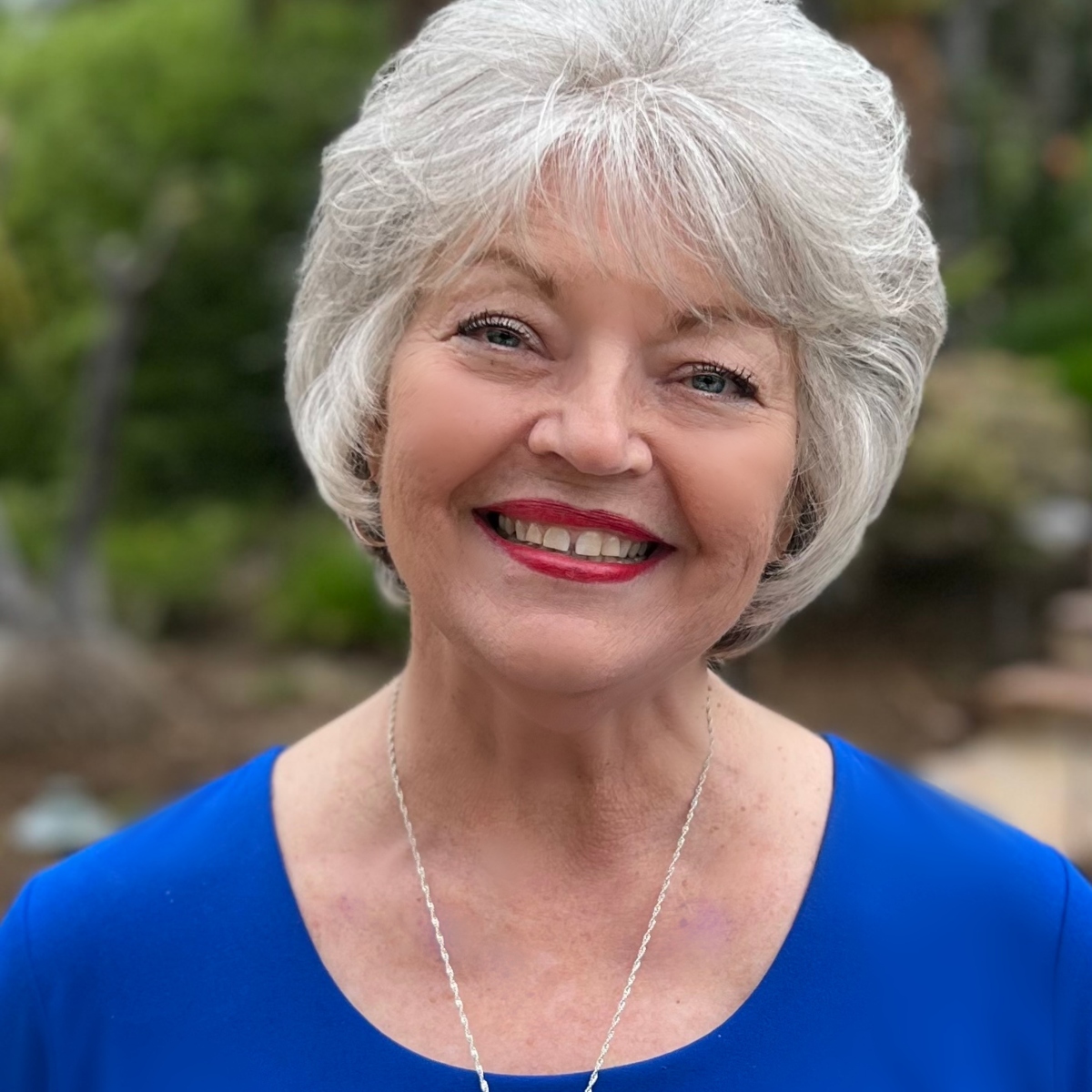Apollos: Passionate Pastor and Father of the Early Church
Share

Though most Christians have heard of the apostle Paul, few have heard of his friend Apollos. However, Apollos was an important leader in the story of the early church.
There are not many Scripture passages about Apollos, but what we do read about him reveals a man of integrity with unique spiritual gifting. He is worthy of careful study.
Photo credit: Unsplash/Ben White
Who Was Apollos, and What Was He Like?

Apollos was a contemporary of Paul in the first century church. He was a Hellenized Jewish Christian from Alexandria, Egypt, the second largest city in the Roman Empire. Some teachers say his name came from the Greek culture—from the Greek god, Apollo. Others say it is a shortened version of the name of a great scientist in Egypt, Apollonius.
Alexandria was the capital of the Roman province of Egypt, founded by Alexander the Great. The Jewish population of Egypt was about one million Jews, and many lived in Alexandria. It was an intellectual haven; Josephus says the city had a library of more than half a million scrolls. Alexandria was also a hub for philosophers, and Philo, a Jewish philosopher and eloquent preacher, lived there. Perhaps Philo influenced Apollos’ early thinking.
Apollos became a competent student of the scriptures while in Alexandria. He was diligent and accurate (Acts 18:25). No slip-shod study for Apollos! In Acts 18:24-26, Luke describes him as “a learned man, with a thorough knowledge of the Scriptures.” He had been “instructed in the way of the Lord.”
While he cultivated great biblical knowledge, Apollos also expressed that knowledge well. He was eloquent and competent, but also enthusiastic and bold. The Bible says he was “fervent in spirit.” His soul was on fire! Gordon Franz wrote of Apollos: “It is a rare combination to find a preacher who is both eloquent and mighty in the Scriptures. Usually a preacher is one or the other, or neither!”
In spite of all his giftedness, there was something Apollos lacked. God had to further prepare him for ministry before he became an effective New Testament evangelist, church leader, and apologist concerning the truth about Jesus Christ.
Photo credit: ©Getty Images/Javier Art Photography
Where Do We First See Apollos in the Bible?

Apollos came to Ephesus around A.D. 54 (Acts 18:24). He taught the Jews boldly in the synagogue there (Acts 18:26). Though he accurately taught about the coming Messiah, Apollos had not yet heard that the Messiah had come. And like other men Paul found in Ephesus, Apollos didn’t understand that the Holy Spirit had been given (Acts 19:1-2).
Apollos didn’t know about the baptism of the Holy Spirit. He only knew of the baptism of John the Baptist—the baptism unto repentance, an act of confession of sin in anticipation of the Messiah’s coming. As a likely disciple of John, Apollos would have also preached repentance in view of the approaching kingdom of God in Christ.
Apollos didn’t fully understand the scope of the Gospel message—the death and resurrection of Jesus. In other words, though bold and fervent, Apollos only knew and preached a portion of the truth. He had not yet experienced the power of the Holy Spirit in his life. He needed more spiritual understanding, which God supplied through two mentoring Christians.
Aquila and Priscilla: Friends and Teachers
Aquila and Priscilla were two of Paul’s friends. Aquila was a Jewish Christian, and he and his wife Priscilla first met Paul in Corinth—escaping Roman persecution in Italy because Aquila was Jewish. The couple settled in Corinth and became tentmakers like Paul. They worked together to found the Corinthian church. When Paul left for Ephesus, he took his two coworkers with him, and they established a church in there in their home (1 Corinthians 16:19).
Priscilla and Aquila were wise, hospitable, and strong in their faith. Paul left them in Ephesus to do pioneering work pending his return from Jerusalem. They understood strong doctrine from Paul’s teaching.
They met Apollos in Ephesus. After hearing him speak in the synagogue, and noticing his natural strengths, they also realized Apollos needed more information in light of the good news about Jesus. These humble servants of God didn’t embarrass Apollos. Instead, they took him under their watch to explain “the way of God more adequately” (Acts 18:26).
In other words, Aquila and Priscilla preached about Jesus the Messiah—His life, death, and resurrection—and passed Paul’s teachings on to Apollos too. They filled in the missing pieces of the Gospel story that he needed as a new Christ-follower, to be properly prepared for a powerful preaching ministry. Apollos showed he had a teachable spirit; he received their instruction gladly.
Related Resource: Check out our FREE Bible Study podcast, How to Study the Bible! Available at LifeAudio.com. Listen to the first episode here by clicking the play button below:
Photo credit: ©SparrowStock
How Did Apollos Help Grow the Church?

After the mentoring, Apollos traveled to Achaia with a letter of recommendation to the disciples there. When he arrived, “he was a great help to those who by grace had believed (Acts 18:27).”
Apollos became an effective, powerful apologist for the Gospel, refuting the objections of the Jews in public, and explaining that Jesus was indeed the Christ, the Messiah.
He eventually ended up in Corinth (Acts 19:1). Paul described Apollos’ role and ministry in 1 Corinthians 3:6: “I planted the seed, Apollos watered it, but God has been making it grow.” Paul was the founder of the Corinthian church—planting the precious seed of the Gospel—and Apollos was the instructor who watered that seed, following-up and building up the church. But God alone, Paul said, brought the spiritual fruit.
What Happened to Apollos?
Unfortunately, Apollos—who had many natural gifts and strengths—attracted a following in Corinth. Admiration for his leadership and eloquent preaching fueled carnal divisiveness in the church. Though Apollos likely didn’t want it to happen, some in Corinth claimed him as their spiritual teacher and mentor—excluding the leadership of Paul and Peter.
Apollos’ teaching differed from Paul’s because they had different giftings and roles; but they were on the same page. They had the same goals for the church community. Paul had to deal with the growing factions in the church. He addressed the problem in the first four chapters of Corinthians. He reminded Christians that Christ is not divided, and only Jesus was crucified for them. Not wanting them to be “puffed up” in being a follower of one leader over another, Paul urged the believers to focus on truth, not personalities (1 Corinthians 4:6).
Paul strongly urged Apollos to go to Corinth, but he was not willing at that time (1 Corinthians 16:12), saying he would go at a later opportunity. The fourth century historian and theologian Jerome said Apollos was so upset by the division in the Corinthian church, he retired to Crete with Zenas, a lawyer who was probably a converted Jewish scribe.
The New Testament leaves Apollos in Create as a traveling preacher. Paul wrote to Titus in Crete: “Do everything you can to help Zenas the lawyer and Apollos on their way and see that they have everything they need” (Titus 3:13). Paul considered his friend a worthy co-laborer in spreading the Gospel.
Some believe Apollos finished his ministry in the Ephesus church, but the Bible does not verify that. Martin Luther believed he was the unknown author of Hebrews, but again, though he may have had some input in its writing, there’s no biblical confirmation of that.
Photo credit: ©Getty Images/Gajus
What Are Some Lessons We Get from Apollos’ Life?

As a man of biblical knowledge and wisdom, Apollos’ life encourages believers to dig deeper into the scriptures—to be “instructed in the way of the Lord.” Whether called to preach, teach, or in any other role, every child of God needs to take 2 Timothy 2:15 to heart. Study the Bible!
Apollos wisely used the resources where he lived to develop his knowledge of Scripture. Christians today have vast resources to aid them in Bible study: church and public libraries, books that can be ordered online, numerous Bible translations, commentaries and study guides, articles on the Internet, great Bible expositors, and so on. There is always something more to learn!
In his apologetics ministry, Apollos learned how to defend the scriptures, especially concerning the coming of the Messiah. Christ-followers today must be discerning and learn how to “stand firm in the faith” (1 Corinthians 16:13) and proclaim God’s Word in a world that desperately cries out for truth.
Apollos had a willing, teachable spirit. Though he was a learned man, he allowed Aquila and Priscilla to pour truth into his life. When believers squelch intellectual pride and are teachable, they can “grow in the grace and knowledge of the Lord” (2 Peter 3:18). Note: God might use someone with less status or education to teach believers important lessons that they might never learn anywhere else. As a side note, Christians can learn from Aquila’s and Priscilla’s mentoring style. They did not condemn, but corrected in a loving way using sound doctrine, and encouraged Apollos’ progress.
As a man of great zeal for God, Apollos would remind Christians to obey God with enthusiasm. “Never be lacking in zeal, but keep your spiritual fervor” (Romans 12:11).
Apollos did not go it alone. He embraced the New Testament concept of missions—traveling with at least one other believer (see Mark 6:7; Acts 13:2). This is a wise ministry principle because believers need others for strength, encouragement, and accountability.
Finally, Apollos models the importance of using God-given spiritual gifts. Using his gifts, Apollos promoted the Gospel with enthusiasm, taught the truth of the Word with accuracy, and faithfully built up the Body of Christ. Likewise, every Christian has at least one spiritual gift, and Apollos would encourage all believers to discover and use their gifts to bring glory to God and advance His work.
Sources
BibleAsk.org - “Who Was Apollos in the New Testament?”
WhatChristiansWantToKnow.com - “Who Was Apollos?”
BibleWise.com - “Apollos”
BibleArcheaeology.org - “Apollos: Eloquent and Mighty in the Scriptures”
Photo credit: ©Getty Images/Tinnakorn Jorruang
